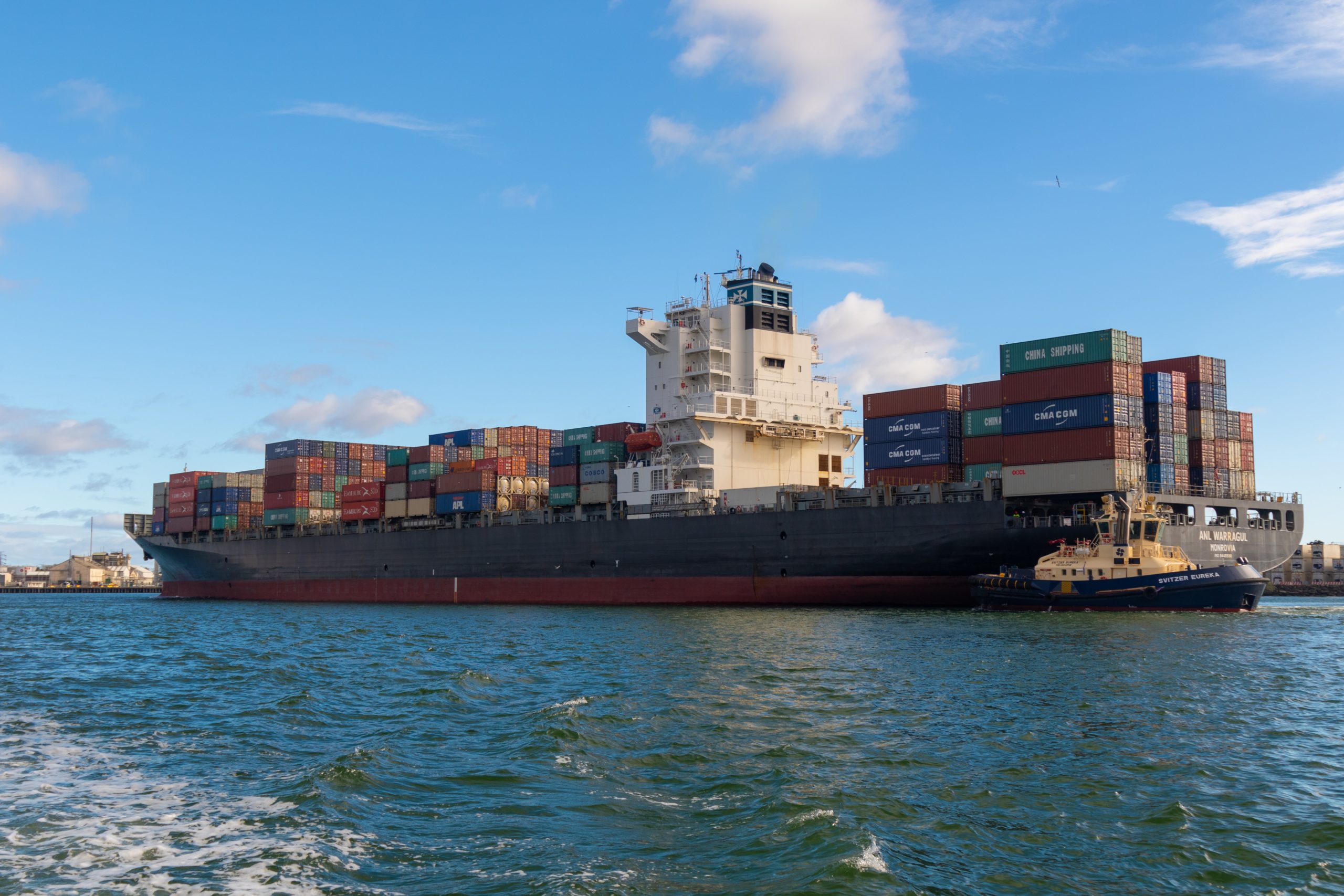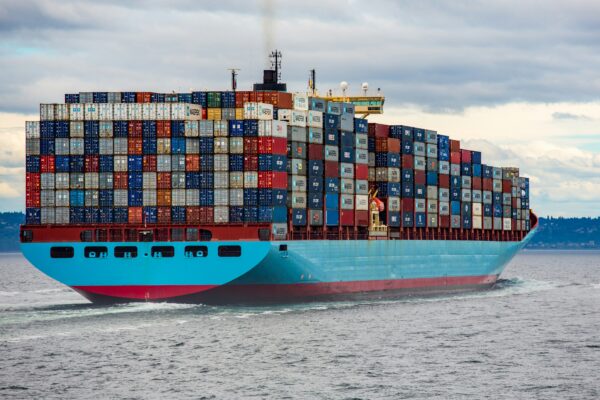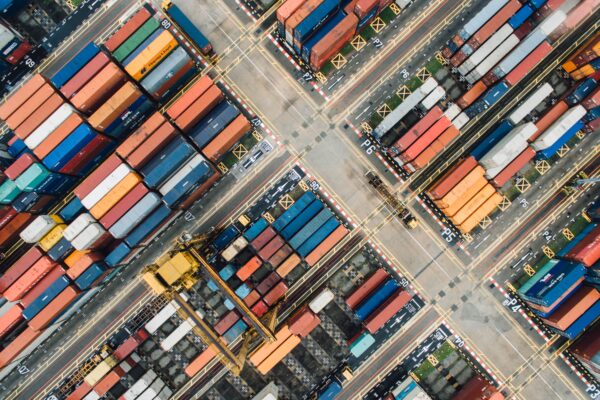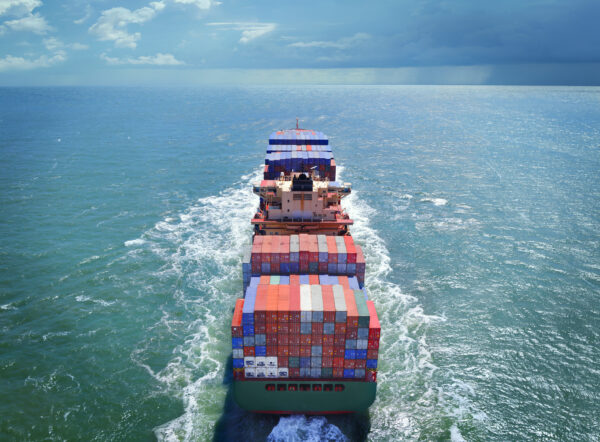Zencargo Market Update: 21st February
Feb 21, 2022
Scroll to find out more
Feb 21, 2022
Scroll to find out more

Lower factory output due to the Chinese New Year holiday season has helped to ease port congestion however, cargo backlogs and container shortages are contributing to higher rates.
Services have returned to normal at Yantian, Shekou and Guangzhou in South China and in North China, Qingdao and Tianjin are also operating normally.
Shanghai remains the exception; the port is still suffering with congestion as most vessels are delayed by a week. Despite this, the capacity situation at Shanghai has improved post Chinese New Year, although space remains tight and vessels have blank sailings and omitted services. High volumes of cargo before the holiday are still taking up space for departures.
Shenzhen and Hong Kong are performing better but they are currently battling local Covid waves. On 8th February, several warehouses in Shenzhen stopped receiving cargo due to Covid restrictions. Shenzhen still has some restrictions in place, causing delays for factories and transport.
Businesses need to work with their freight forwarding partner to get the latest updates on relevant ports in the event of any local port disruptions that may affect their exports.
Sea
| Carriers | POL | 20GP | 40GP | 40HQ |
|---|---|---|---|---|
| HPL | NINGBO | Normal | Normal | Normal |
| SHANGHAI | Normal | Normal | Normal | |
| YANTIAN | Normal | Normal | Normal | |
| SHEKOU | Normal | Normal | Normal | |
| MSK | QINGDAO | Normal | Normal | Normal |
| SHANGHAI | Normal | Normal | Normal | |
| NINGBO | Normal | Normal | Normal | |
| Nanjing | Normal | Normal | Normal | |
| Xiamen | Normal | Normal | Normal | |
| YANTIAN | Normal | Normal | Normal | |
| SHEKOU | Normal | Normal | Normal | |
| NANSHA | Normal | Normal | Normal | |
| HONGKONG | Normal | Normal | Normal | |
| SHANTOU | Normal | Normal | Normal | |
| ONE | YANTIAN | Normal | Normal | Normal |
| SHEKOU | Normal | Normal | Normal | |
| XINGANG | Normal | Normal | Normal | |
| QINGDAO | Normal | Normal | Normal | |
| SHANGHAI | Normal | Normal | Normal | |
| NINGBO | Normal | Normal | Normal | |
| ZIM | XIANGANG | Normal | Normal | Normal |
| NINGBO | Normal | Normal | Normal | |
| SHANGHAI | Normal | Normal | Normal | |
| YANTIAN | Normal | Normal | Normal | |
| SHEKOU | Normal | Normal | Normal | |
| HMM | SHANGHAI | Normal | Normal | Normal |
| NINGBO | Normal | Normal | Normal | |
| YANTIAN | Normal | Normal | Normal | |
| SHEKOU | Normal | Normal | Normal | |
| MSC | SHANGHAI | Normal | Normal | Normal |
| NINGBO | Normal | Normal | Normal | |
| YANTIAN | Normal | Normal | Normal | |
| SHEKOU | Normal | Normal | Normal | |
| EMC | YANTIAN | Normal | Normal | Normal |
| SHEKOU | Shortage | Shortage | Shortage | |
| NINGBO | Shortage | Shortage | Shortage | |
| SHANGHAI | Normal | Normal | Normal | |
| QINGDAO | Shortage | Normal | Normal | |
| OOCL | YANTIAN | Normal | Normal | Normal |
| SHANGHAI | Normal | Normal | Normal | |
| NINGBO | Normal | Normal | Normal | |
| CMA | QINGDAO | Normal | Normal | Shortage |
| SHANGHAI | Normal | Normal | Shortage | |
| NINGBO | Normal | Normal | Shortage | |
| YANTIAN | Normal | Normal | Shortage | |
| SHEKOU | Normal | Normal | Shortage | |
| cosco | YANTIAN | Normal | Normal | Normal |
| SHEKOU | Normal | Normal | Normal | |
| SHANGHAI | Normal | Normal | Normal | |
| NINGBO | Normal | Normal | Normal | |
| QINGDAO | Normal | Normal | Normal | |
| DALIAN | Normal | Normal | Normal | |
| XINGANG | Normal | Normal | Normal | |
| YML | YANTIAN | Normal | Normal | Normal |
| SHEKOU | Normal | Normal | Normal |
Air
Central China to USA and Europe
North China to USA and Europe
South China to USA and Europe
Road/Rail
Sea
Sea
Air
Air
Road/Rail
European Parliament approved reform of road haulage charging
Under the new rules adopted on Thursday, road charges for trucks will move from time-based to distance-based charging, making ‘polluter pays’ principles work better.
The aim of the new rules is to move road charging from a time-based model to an actual kilometres-driven system, to better reflect the ‘polluter pays’ and ‘user pays’ principles.
MEPs secured that member states will phase out “vignettes” (time-based road charging) for heavy-duty vehicles across the core Trans-European Transport Network network within eight years of the new rules entering into force, and start applying tolls (distance-based charges). However, member states will still be able to retain vignettes for specific parts of this network, if they can prove that a new mode of charging would be disproportionate to expected revenue.
Fuel prices continue to rise
The situation in Ukraine, alongside other factors, including the COVID-19 pandemic, has pushed prices at the pump to record highs.
The current average for diesel is now approaching 152p per litre with motor organisations describing current pricing as the highest it has ever been.
Haulage operators are having to pass on rising costs and every penny means another $450 per year to the cost of operating at 44-tonnes.
Government Changes HGV Law to allow for Aerodynamic Features and Longer Cabs
Government legislation has been changed to permit the use of aerodynamic features and elongated cabs on lorries to reduce fuel consumption and emissions.
Since 14th February, haulage operators are able to choose vehicles which reduce fuel consumption by an estimated 7% to 15%. Previous legislation in place since 1986 meant that the aerodynamic rear devices – fitted on the back of trailers – were not permitted. Alongside emissions reduction through fuel efficiency, the elongated cabs also improve driver vision and can accommodate larger beds in sleeper cabs.
European Bank Holidays
Zencargo anticipates a shortage of availability and the occurrence of delays around the bank holiday periods. Plan ahead and allow extra time for your products to be delivered.
February 23rd – RU
February 24th – EE
February 28th – AD, ES
March 1st – BA*
March 3rd – BG
March 7th – GR
March 8th – BA*, BY, DE, MD, RU, UA
March 11th – LT
March 14th – AD, HU
March 15th – HU
March 17th – GB (NI only),
March 19th – CH*, ES*
March 25th – GR
*Not in all regions
The route ahead
The information that is available in the Weekly Market Update comes from a variety of online sources, partners and our own teams. Click below to learn more about how Zencargo can help make your supply chain your competitive advantage.

In Focus: Tensions in the Middle East continue Over the past week, tensions hav...

In Focus: A market outlook Rolf Habben Jansen, CEO of Hapag Lloyd, anticipates...

In Focus: Carriers announce GRIs in April Following the Chinese New Year holida...